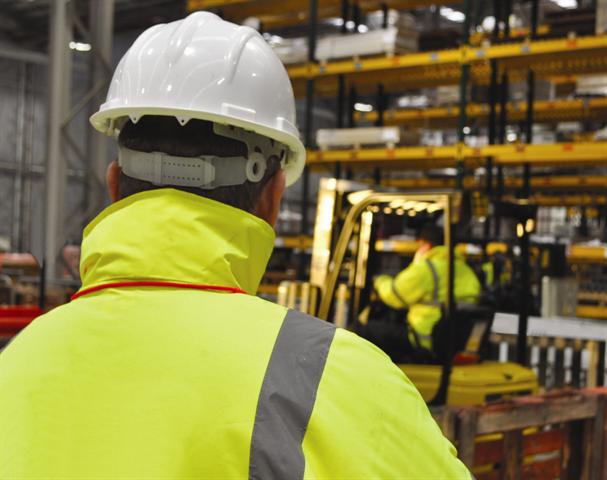 Richard Shore |
Richard Shore is managing director of Mentor FLT Training Limited, the UK's leading provider of training and associated services for all types of materials handling equipment and workplace transport.
In the last few years, British companies have made great strides towards improving forklift safety. Accident figures have tumbled, and working with - or near - forklifts in the UK is far less dangerous than it was, even fairly recently.
However, that decline has stalled; even now, forklifts are still hospitalising workers in the UK at the rate of one per day. Clearly, there is more to be done - and it's not just the operators who have a role to play.
The survey says...In September 2013, we worked closely with the Fork Lift Truck Association, in support of its annual Safety Week campaign and, together, we conducted Britain's biggest ever survey into forklift safety. The survey was designed to test the knowledge of hundreds of operators, pedestrians, managers and supervisors and the results were both surprising and disconcerting.
 Managers are in the dark on safety |
As you might expect, forklift operators and their colleagues on foot were reasonably well versed in the knowledge required to work safely. Almost two-thirds achieved the challenging pass mark, and a quarter achieved 100%.
However, when we looked at managers and supervisors, the picture was completely different. Only one third passed, and none of them answered every question correctly.
The results suggest that frontline staff have a far firmer grasp of safe operations than their supervisors. And the implication is clear: workers may be at risk because their managers lack the knowledge to identify and eliminate risky practice, leaving them unable to address potentially dangerous skills gaps.
Providing managers and supervisors with the knowledge and confidence to engage the workforceLast year, when the Health & Safety Executive revised its Approved Code of Practice L117, it formalised the requirement for managers and supervisors responsible for forklift operations to be able to communicate effectively with operators and line managers and maintain and promote health and safety standards.
This does not necessarily mean every manager needs to learn to drive a forklift. But it does mean they need to understand the principles of using one safely. Though operators are the ones carrying out the work, if you're a manager, supervisor or even a director at a company that uses forklifts, it is imperative that you understand the principles of using a forklift safely and are confident enough to intervene, promoting best practice when unnecessary risks are being taken. After all, a company's safety policies are only as good as those that implement them.
Managers and supervisors are pivotal in setting the safety culture at work. The standards they accept and the practices they tolerate are often what become the norm. It is a key role, and it requires specialised skills and knowledge. If you don't understand the dangers, you can't protect your employees or your business.